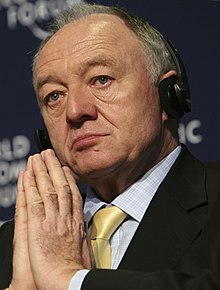| Image courtesy of www.politico.com |
The decision by the USA delegation to abstain from Friday's vote flies in the face of USA policy at the UN Security Council in recent years on the subject of resolutions condemning Israel. In the words of outgoing UN Secretary-General Ban Ki Moon, Israel has been the victim of a disproportionate number of resolutions condemning her actions at the hands of various UN organisations. One could interpret this to mean that Israel has been unfairly targeted by the UN, and unjustifiably singled out for constant criticism and condemnation. The USA has somewhat redressed this imbalance by exercising its right of veto at the Security Council over the years, and has ensured that the unfair condemnations of Israel are not allowed to stand, at least in that forum. The most recent example of this was in 2011, when the Obama administration vetoed a resolution that condemned Israel's settlement activity. The resolution on that occasion was remarkably similar to the one passed by the Security Council on Friday by virtue of the US abstention. So what has changed in 5 short years, that justified the US turning its back on Israel at this time?
In 2011, there was a great deal more at stake for President Obama. He had been in office for approximately 3 years, and was already eyeing his re-election with the hope of returning to the White House for 4 more years. His decision to veto the resolution on that occasion was all about serving his interest at that time, rather than showing what he genuinely felt and believed. Fast-forward 5 years, and Obama has no political capital to win or lose from the Security Council vote. He will vacate the Oval Office in less than a month, and this vote has no bearing on his future whatsoever. The only reason that he would vote in one direction or another, is to reflect his genuine view on the matter. This view is shown loudly and clearly in a resolution that is one-sided and false in its depiction of the reality. This is the legacy that Obama and Kerry are leaving on their peace-making efforts over the years, that were presented as being fair and even-handed.
This act puts an entire 8 year presidency into context. There were many conspiracy theories about what Obama's true position on Israel was. Was he influenced by the fact that he comes from Muslim heritage? Was he genuinely sympathetic to Israel's struggle for survival? Did he understand that the obstacles to peace are numerous, and not only the fault of one party or the other? He tried to cloud the answers to these questions, and presented himself as a friend of Israel throughout his term in office. This single act at the end of his presidency, however, has clarified all that has gone before. While Israel would never wish to oppose the possibility of reaching a genuine agreement with the Palestinians, it has always been important to Israel that any agreement be reached on the basis of mutual respect and recognition between the parties. This respect and recognition has been sorely missing from the Palestinian side.
The only real purpose that this resolution serves, is to continue to perpetrate the view that Israel is solely to blame for the lack of progress towards peace. And Israel's policy on settlements is an easy scapegoat to use to illustrate why Israel should be blamed. If it was true that the settlements are the main obstacle to peace, why was peace not achieved in the period from 1948 to 1967, when there were no settlements to blame. Not only was peace not achieved, the Arabs were hell-bent on destroying Israel at any and every opportunity. But now, the settlements are being presented as the only reason for the lack of a peace agreement. Where is the criticism of the fact that the Palestinians refuse to recognise Israel as a Jewish state, that has a right to live in peace and security? Or of the fact that the PLO charter continues to call for the destruction of the State of Israel? Or the continuous terror attacks that Israelis are forced to endure? These were conveniently ommitted from the UN Security Council resolution, and this emphasizes how one-sided how this resolution really is.
If the resolution served to somehow move the peace process forward or to make a positive contribution the situation, I would be able to understand Obama's decision to allow it to stand on the record. Unfortunately, this is not the case. Instead, it is a pointless finger-pointing exercise that makes little contribution to the creation of a positive environment for peace-making. And now, it is clearer as to who is pointing at whom. Obama, your true colours have been revealed. Shame on you.







